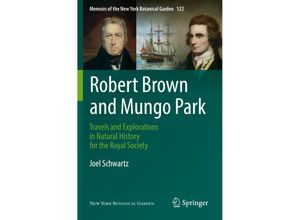Explorer-naturalists Robert Brown and Mungo Park played a pivotal role in the development of
natural history and exploration in the late eighteenth and early nineteenth centuries. This
work is a fresh examination of the lives and careers of Brown and Park and their impact on
natural history and exploration. Brown and Park were part of a group of intrepid naturalists
who brought back some of the flora and fauna they encountered drawings of what they observed
and most importantly their ideas. The educated public back home was able to gain an
understanding of the diversity in nature. This eventually led to the development of new ways of
regarding the natural world and the eventual development of a coherent theory of organic
evolution. This book considers these naturalists Brown Park and their contemporaries from
the perspective of the Scottish Enlightenment. Brown's investigations in natural history
created a fertile environment for breakthroughs in taxonomy cytology and eventually
evolution. Brown's pioneering work in plant taxonomy allowed biologists to look at the animal
and plant kingdoms differently. Park's adventures stimulated significant discoveries in
exploration. Brown and Park's adventures formed a bridge to such journeys as Charles Darwin's
voyage on H.M.S. Beagle which led to a revolution in biology and full explication of the
theory of evolution.



